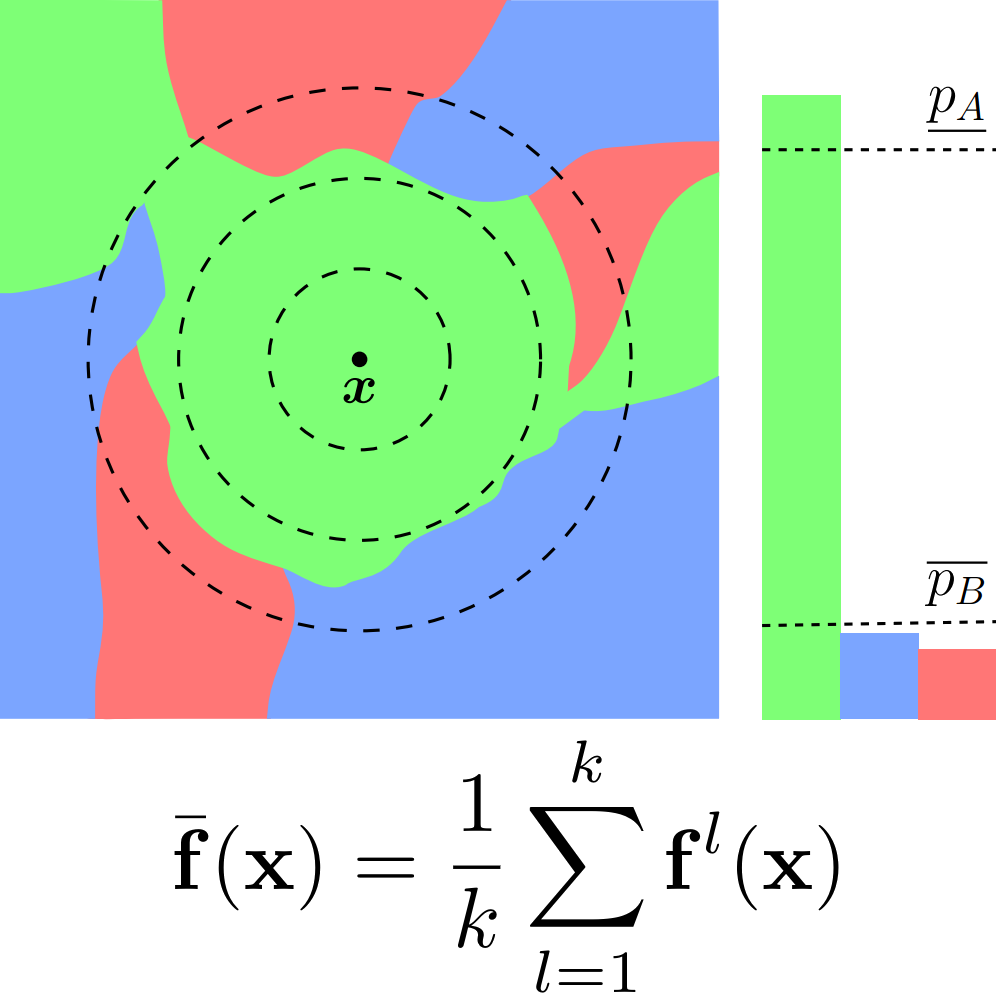SRI Lab at ICLR 2022
Aggregated by Nikola Jovanović, Mislav Balunović
April 25, 2022
The Tenth International Conference on Learning Representations (ICLR 2022) will be held virtually from April 25th through 29th. We are thrilled to share that SRI Lab will present five works at the conference, including one spotlight presentation! In this meta post you can find all relevant information about our work, including presentation times, as well as a dedicated blogpost for each work, presenting it in more detail. We look forward to meeting you at ICLR!
Fair Normalizing Flows
Authors:
Mislav Balunović,
Anian Ruoss,
Martin Vechev
Keywords: fair representation learning, normalizing flows
Conference Page: https://iclr.cc/virtual/2022/poster/7045
Poster - Mon Apr 25 19:30 UTC+2 (Poster Session 2)
Keywords: fair representation learning, normalizing flows
Conference Page: https://iclr.cc/virtual/2022/poster/7045
Poster - Mon Apr 25 19:30 UTC+2 (Poster Session 2)
Provably Robust Adversarial Examples
Authors:
Dimitar I. Dimitrov,
Gagandeep Singh,
Timon Gehr,
Martin Vechev
Keywords: adversarial examples, robustness
Conference Page: https://iclr.cc/virtual/2022/poster/6160
Poster - Tue Apr 26, 19:30 UTC+2 (Poster Session 5)
Keywords: adversarial examples, robustness
Conference Page: https://iclr.cc/virtual/2022/poster/6160
Poster - Tue Apr 26, 19:30 UTC+2 (Poster Session 5)
Complete Verification via Multi-Neuron Relaxation Guided Branch-and-Bound
Authors:
Claudio Ferrari,
Mark Niklas Müller,
Nikola Jovanović,
Martin Vechev
Keywords: certified robustness, adversarial examples
Conference Page: https://iclr.cc/virtual/2022/poster/6097
Poster - Wed Apr 27 11:30 UTC+2 (Poster Session 7)
Keywords: certified robustness, adversarial examples
Conference Page: https://iclr.cc/virtual/2022/poster/6097
Poster - Wed Apr 27 11:30 UTC+2 (Poster Session 7)
Bayesian Framework for Gradient Leakage
Authors:
Mislav Balunović,
Dimitar I. Dimitrov,
Robin Staab,
Martin Vechev
Keywords: federated learning, privacy, gradient leakage
Conference Page: https://iclr.cc/virtual/2022/poster/6934
Poster - Wed Apr 27 19:30 UTC+2 (Poster Session 8)
Keywords: federated learning, privacy, gradient leakage
Conference Page: https://iclr.cc/virtual/2022/poster/6934
Poster - Wed Apr 27 19:30 UTC+2 (Poster Session 8)
Boosting Randomized Smoothing with Variance Reduced Classifiers (Spotlight)

Authors:
Miklós Z. Horváth,
Mark Niklas Müller,
Marc Fischer,
Martin Vechev
Keywords: randomized smoothing, certified robustness, ensembles
Conference Page: https://iclr.cc/virtual/2022/spotlight/6328
Spotlight - Thu Apr 28, 19:30 UTC+2 (Poster Session 11)
Keywords: randomized smoothing, certified robustness, ensembles
Conference Page: https://iclr.cc/virtual/2022/spotlight/6328
Spotlight - Thu Apr 28, 19:30 UTC+2 (Poster Session 11)

